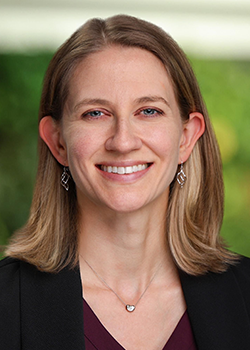
Bariatric surgery doesn’t just help patients manage their type 2 diabetes. It can also save them thousands of dollars in health care costs over the long run, according to new research from Duke University School of Medicine.
Analyzing data from over 25,000 adults, researchers revealed surgical patients saved almost $2,500 a year, and their health care costs were lower than non-surgical patients for 5.5 years after the weight loss procedure.

The findings, published June 12 in Diabetes Care, show surgical patients mostly saved on medicines. After surgery, their medication spending dropped by 56%.
The Duke study provides a reminder of the lasting savings surgery can deliver even as buzz builds around new GLP-1 weight loss medicines.
“For patients with diabetes, the clinical benefits of surgery shown in clinical trials and real-world studies like this one clearly translate into cost savings,” said Matthew Maciejewski, PhD, a population health and medicine professor at Duke who studies obesity treatments.
“That makes people with diabetes especially strong candidates for bariatric surgery given the combined health and economic benefits,” he said.
Maciejewski led the study along with Department of Population Health Sciences researcher Valerie Smith, DrPH, and internal medicine physician Caroline Sloan, MD, and the National Institute of Diabetes and Digestive and Kidney Diseases provided funding.
The U.S. spends hundreds of billions of dollars a year on obesity and diabetes care.
With GLP-1 drugs becoming more common -- and costing $500 to $1,800 a month depending on discounts and insurance coverage -- Maciejewski has also applied for funding to study their long-term costs for people with diabetes.
Less Weight, More Money Back
Bariatric surgery is an option for people who haven’t had long-term success with dieting and exercise alone, and it works by permanently changing how much you can eat and how your body absorbs calories.

For the current study, researchers analyzed data from more than 25,000 adults with diabetes. Nearly 6,700 had bariatric surgery; the rest didn’t.
Before surgery, both groups spent about the same amount on health care and medications, including insulin, to control their diabetes. But just a year later, costs started dropping for the surgery patients.
The biggest driver of savings for those who had bariatric surgery was fewer prescriptions. Bariatric surgery has been shown to resolve obesity-related conditions such as high blood pressure, sleep apnea, and type 2 diabetes.
The study found that many patients were able to stop multiple medications after surgery, a big deal as the cost of diabetes medications keeps going up.
Maciejewski, an affiliate of the Duke Margolis Institute for Health Policy, has studied bariatric surgery cost outcomes of veterans for the Department of Veterans Affairs.
But VA patients are mostly older men, while bariatric surgery patients in the general population skew younger and more often female. The new study looked beyond the VA and focused on patients at Kaiser Permanente Health System who had bariatric surgery, including sleeve gastrectomy, between 2012 and 2019.
The health and financial benefits extended to this broader, more diverse group as well.
Economics of Obesity Treatment

One of the study’s strengths is its long-term scope that captures real-world outcomes beyond the initial weight loss.
“Patients don’t just lose weight and take fewer meds for a little while,” Maciejewski said. “These were durable benefits.”
The research may have implications for insurance coverage and health policy, as GLP-1 agonist medications reshape the obesity treatment landscape.
“The portfolio of weight loss interventions is really influx right now because so much money is being spent on GLP-1s and patients seem more interested in those than bariatric surgery,” he said. "We’re in a period where it’s really uncertain where bariatric surgery fits in and which types of patients will benefit from surgery.”
His team has explored which subgroups of patients reap the greatest financial benefits from bariatric surgery -- with early signs pointing to those with the most severe disease and highest baseline costs.
Additional funding was provided to authors by the Department of Veterans Affairs, the John A. Hartford Foundation, and the Duke Clinical and Translational Science Institute (CTSI).